Would a Gun Be Able to Shoot in Space if You Shot a Bullet in Space Would It Continue to Go Faster
Here's What Would Happen If You Fired A Gun In Space
Governments and, of late, private companies and individuals have been sending objects and people into space for the better part of 70 years now, and yet we've barely scratched the surface when it comes to unraveling the mysteries contained up there.
When space missions aren't concerned with commercial or military work, such as deploying or repairing satellites or conducting surveillance of the ground, the astronauts have spent their time carrying out scientific experiments. The vast majority of the scientific experiments conducted in space have had to do with space itself, such as its effects on the astronauts or the spacecraft, or how microgravity affects various life forms. Very few of the experiments done up there have been intended to satisfy scientific curiosity about a hypothetical and inconsequential matter, such as what would happen if you fired a gun in space.
In fact, there's no need to. What we've already learned about guns, space, and physics tells us everything we need to know.
You may remember from elementary school science class that a fire needs three things: heat, fuel, and air, in order to work. A gun works by harvesting the power of fire, in a manner of speaking, by creating an explosion that propels the bullet from the chamber, according to Live Science. However, as there's no air in space, a key part of the equation is missing.
The bullet would fly off into space indefinitely
That's not a problem, however, as modern-day ammunition contains its own oxidizer, a chemical that allows combustion to take place in the absence of air. Since everything you need is right there in the bullet, the gun and bullet will work in space just as well as they would on the ground.
There would be some minor differences, of course. Unless you shot it from inside a spacecraft (which would be a terrible idea), you wouldn't hear the explosion, due to the lack of air in space to carry the sound waves. And instead of a wispy vapor trail like you see in the movies, the smoke would just expand in a sphere from the tip of the barrel. On the ground, gravity and friction will mean that the bullet can and will only fly so far. In space, gravity and friction are still factors, but their effects are completely different, and this would be particularly evident if you fired a bullet up there.
Harvard astronomer Matija Cuk told Live Science that, once the bullet is fired, it's likely going to travel in space until the heat death of the universe. "The bullet will never stop, because the universe is expanding faster than the bullet can catch up with any serious amount of mass [to slow it down]," Cuk noted.
The shooter will also be 'shot' into space
Of course, this assumes that the bullet won't be captured by the gravity of a star or planet and eventually brought back "down." But considering that objects with actual mass, such as stars and planets, take up so little of the universe compared to the vast expanse of space, that the likelihood of that happening is extremely small.
If you've ever fired a gun in real life, you're almost certainly aware that the process produces a "kick" that you have to expect and likely brace yourself for, lest it disrupt your balance. Holding the gun the wrong way can produce a kick that could injure the shooter, to say nothing of interfering with the gun's aim and endangering bystanders. The kick is the result of one of the foundational rules of physics: Newton's Third Law, which says that for every action, there is an equal and opposite reaction, as Live Science explains.
In space, absent gravity and friction, that means that the bullet will be sent off into space in one direction, the shooter in the other. As this YouTube video from Business Insider explains, just how fast the bullet and shooter will be sent off in their respective directions depends on the velocity and weight of shooter and bullet. The video notes that firing an AK-47 will send the shooter backwards at .068 miles per hour, while firing a small handgun, with a slower-moving but heavier bullet, will send the shooter in the opposite direction at about twice that speed.
You could (theoretically) shoot yourself in your own back
Imagine being an astronaut orbiting above the Earth, on a spacewalk, for example, far enough away from your spacecraft that you could fire your gun without endangering your crew. You, your craft, and everything else at that altitude are all orbiting the Earth. And, as Live Science explains, if you fired your gun at exactly the right angle, the bullet would also go into orbit around the Earth.
You may be seeing why this would be a problem, but if not, here's what could happen: Since orbits are circular, the bullet will eventually make a circle around the Earth, and come back to where it started. And since you are now positioned between the bullet and the starting point to which it is returning, you will have effectively shot yourself in your own back, says Brown University astronomer Peter Schultz, via Live Science. "The aim has to be perfect," he added.
If this all sounds a bit theoretical rather than practical, keep in mind that, as Schultz explained, scientists have actually considered "self-hits" in space in order to investigate impacts (with tiny asteroids, space junk, and so forth), but thought better of it.
The Soviets actually tried it
As it turns out, the matter of shooting guns in space isn't just a thought experiment. Rather, it was an actual experiment that the Russians actually performed. As Medium explains, the Soviets didn't fire a gun so much as a cannon, but since both machines work on the same principle, the results were the same.
It happened in 1975, according to previously-hidden documents that were unearthed following the fall of the Soviet Union. The entire experiment was done remotely from the ground; no cosmonauts were up there at the time. The scientists secured the cannon to the Salyut-3 spacecraft, pointed it somewhere, and fired it three times. Being hip to Newton's Third Law and all that, the Soviets turned on the spacecraft's rocket thrusters to counteract the recoil from the explosions.
Unfortunately, the results of the experiment remain under wraps. However, it's safe to say that, pending the cannon's aim, its projectiles are still hurtling through space to this day.
The Soviets/Russians have been taking guns into space for decades
The matter of guns in space isn't just theoretical, at least not for the Soviet (and later Russian) space programs. As NBC News reported, for decades cosmonauts took guns into space, but not with the intention of firing them while in flight. They had a much more practical reason.
In the early days of the U.S. space program, returning astronauts landed in the middle of the Pacific Ocean, where the Navy would scoop them up out of the water. The Russians, however, did and do send their crews back to the ground (specifically, the vast grasslands of Kazakhstan, according to the Smithsonian's Air and Space), and there they may have to wait hours, if not days, for rescue. As such, they were and are given survival kits that include food rations, first aid kits, and at one time, firearms — in case they encounter dangerous wildlife, for example, or hostile locals. Space journalist James Oberg, writing in IEEE Spectrum, noted that the Russians have stopped including firearms in the kits cosmonauts take into space, although the Russian Space Agency has refused to comment on the matter.
Source: https://www.grunge.com/474941/heres-what-would-happen-if-you-fired-a-gun-in-space/
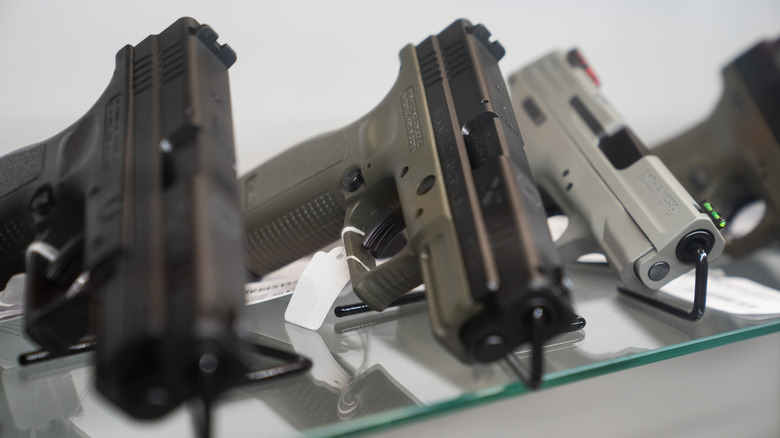
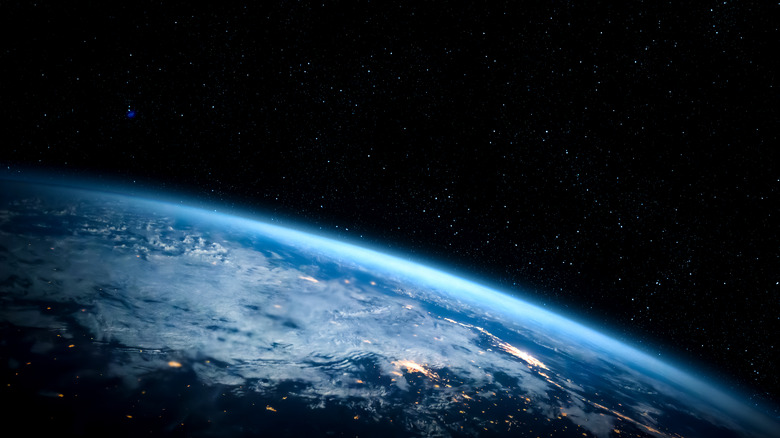
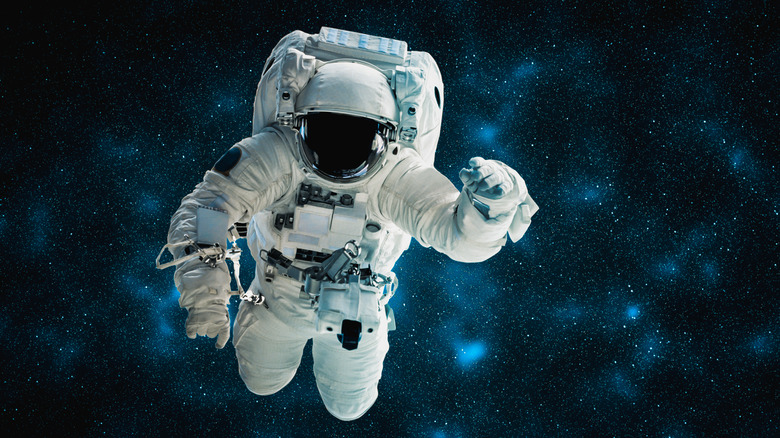
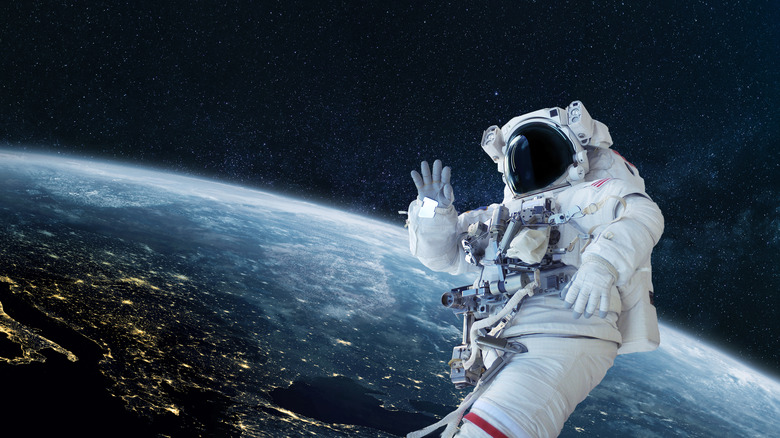
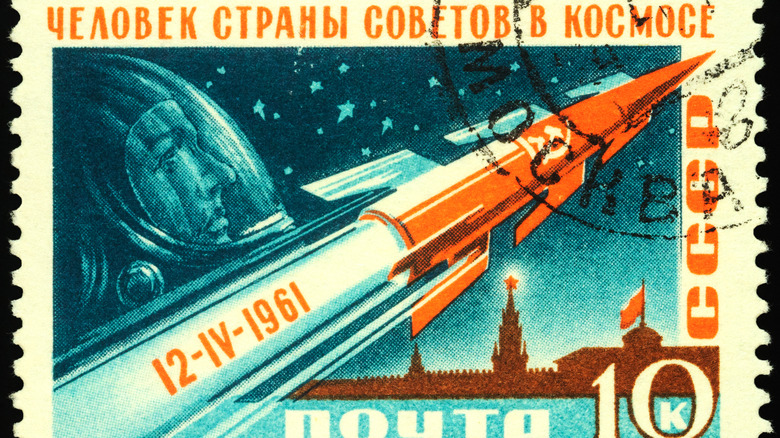

0 Response to "Would a Gun Be Able to Shoot in Space if You Shot a Bullet in Space Would It Continue to Go Faster"
ارسال یک نظر